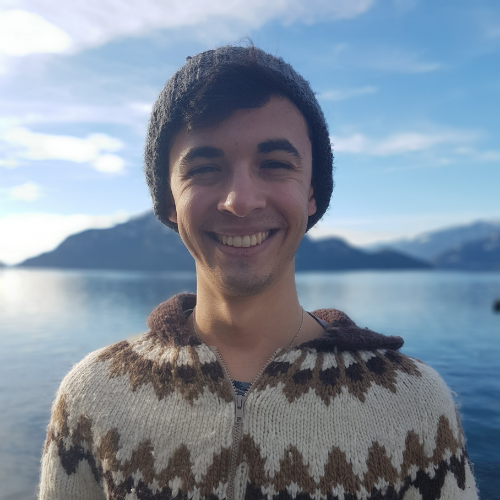Our researchers are a fierce driving force behind therapeutic development and future treatment. Let’s find out what makes them so passionate about KIF1A! Each month, one of our invested members of the KIF1A Research Network will be in the spotlight. Troy Collins, PhD Student and Lab Member, is next up to share a bit about himself and what makes science so exciting!

Troy Collins, PhD Student
Lab Member, Silverman Lab, Simon Fraser UniversityTroy is an early career researcher with the Silverman Lab at Simon Fraser University in British Columbia, Canada. You can learn more about KIF1A research at the Silverman Lab by watching their presentation from the 2021 KAND Family & Scientific Engagement Conference, found at kif1a.org/2021conference.
If you could have any superpower, what would it be and why?
Certainly the ability to cure disease or affect the climate come to mind first! If I’m thinking more recreationally, teleportation or flight would be on my short list as well. I have dear friends in far away places and there’s a lot of the world I would like to see, so making people and places more accessible is a dream of mine.
When did you know you wanted to be a scientist? Why were you drawn to this field?
My Psych100 class in the first year of my undergrad. I was hooked after the unit on neurons. From there I knew I wanted to enroll in as many Neuroscience courses as I could. Understanding the inner workings of neurons has been my overarching interest since then, from neurogenesis in my MSc, to axon transport and KIF1A now!
What do you love most about your job?
I love working with definable goals. There is a lot of legwork to be done studying KAND and the properties of KIF1A function, but breaking down each large question into smaller and more manageable bites lends this work to a sense of progression. Each goal keeps me motivated towards getting to the larger and more important milestones of understanding the effects of KAND!
What is the most challenging aspect of your job?
Troubleshooting, or maybe more accurately getting accustomed to troubleshooting. Trial and error is an important part of experimentation, in many ways it’s essential to the scientific process. It’s all worth it though, to have a fully optimized protocol tailor made to your lab’s own needs.
What development are you most excited about in terms of KIF1A research?
The development of patient derived induced pluripotent stem cell lines with KIF1A mutations is certainly the most exciting development for me. As more lines are developed and distributed to the KAND research community, I think our understanding of the consequences of KAND on neuron function at a molecular level will become much better understood.
I couldn’t get through a day at work without:
Any kind of berry! It’s my favourite kind of snack – portable, sweet and good for a decent energy boost. August is blackberry season and I couldn’t be happier about it.
I am most motivated by:
As mentioned above, tangible goals are certainly big motivators for me. Working for patients has proven to be a big motivating factor for me as well. In my previous positions in basic research, while I found the research compelling, my outcomes did not have a direct impact on people, on families. Knowing my work has a more immediate relevance has helped me keep momentum with my work.
When you are not studying KIF1A, what do you do?
Typically hiking one of BC’s many beautiful trails, or reading a Ursula Le Guin novel!
